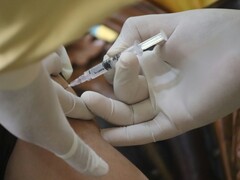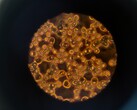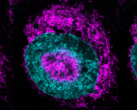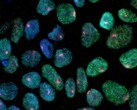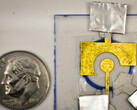4D Molecular Therapeutics (4DMT) recently posted 60-week data of a clinical trial involving its gene therapy — the 4D-150. This therapy encodes aflibercept and vascular endothelial growth factor C (VEGF-C) inhibitory sequence. Aflibercept is an anti-VEGF drug used as the active control in this study.
The results provided evidence on 4D-150's efficacy in the treatment of DME. Patients who received the Phase 3 dose of 4D-150 showed a gain of 9.7 letters in best corrected visual acuity (BCVA) and a 174 micrometer reduction in central subfield thickness (CST). These results indicate both visual and anatomical improvements.
Patients treated with the Phase 3 dose of 4D-150 after three aflibercept loading doses required 78% fewer supplemental injections than those on projected use of on-label aflibercept 2 milligrams every 8 weeks. When compared with those on lower doses of 4D-150, patients receiving the Phase 3 dose also did better, showing a 58% reduction in supplemental injections. Four of nine patients on the Phase 3 dose were injection-free, while only 1 out of 11 of those on lower doses could achieve the same results.
The results were recently presented by David Almeida at the 43rd Annual American Society of Retina Specialists (ASRS) Scientific Meeting.
4D-150 has the potential to fundamentally transform the treatment of DME by reducing treatment burden with a product that has adherence by design, while providing meaningful, lasting vision improvement. — David Almeida.
The 4D-150 therapy was well tolerated by the participants of this study. No intraocular inflammation was observed at any time point, and none of the participants needed modification to the topical corticosteroid regimen. Through the trial, no cases of hypotony, endophthalmitis, vasculitis, choroidal effusions, or retinal artery occlusion occurred. Mean intraocular pressure also remained within normal limits.
Did you know? About 5.3% of diabetic patients have DME (2014 study).


